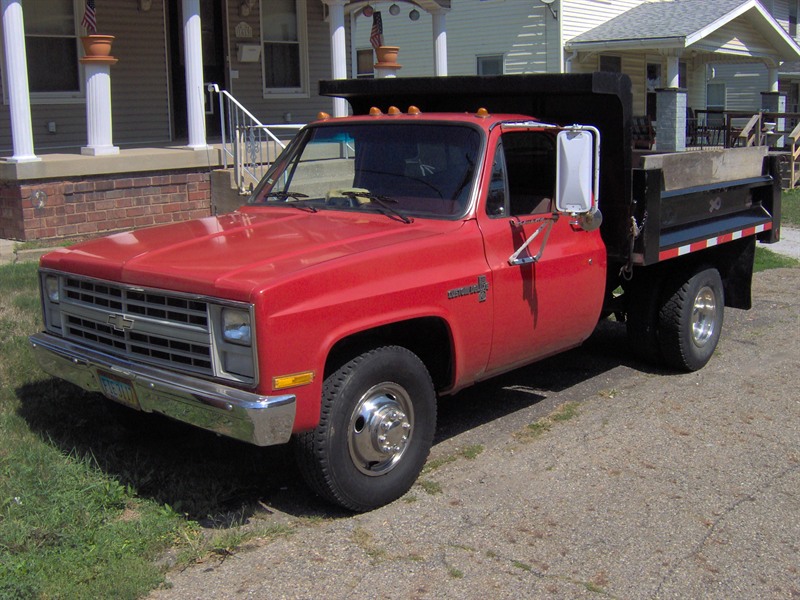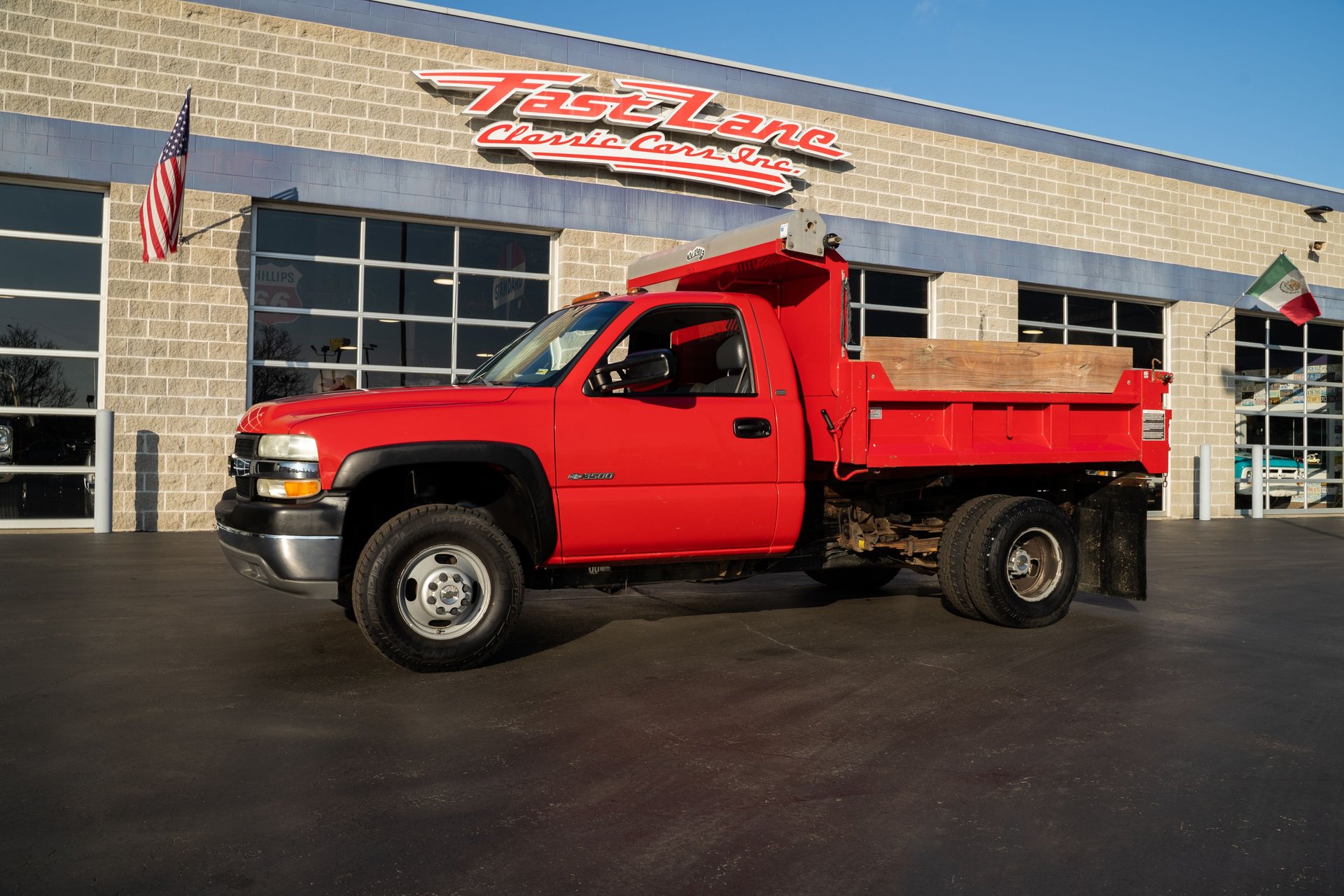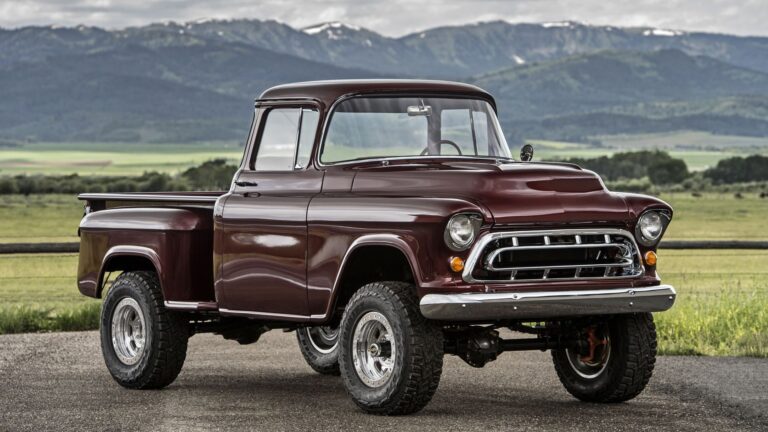Navigating the Market: Your Comprehensive Guide to Used 1-Ton Dump Trucks for Sale in Ohio
Navigating the Market: Your Comprehensive Guide to Used 1-Ton Dump Trucks for Sale in Ohio
The bustling economy of Ohio, with its vibrant construction industry, expansive agricultural lands, and numerous landscaping businesses, consistently generates a significant demand for versatile workhorses. Among the most indispensable vehicles for these sectors is the 1-ton dump truck. Offering a potent blend of robust hauling capacity, maneuverability, and the essential ability to unload materials quickly, these trucks are the backbone of countless operations across the Buckeye State.
While a brand-new 1-ton dump truck can represent a substantial capital expenditure, the used market in Ohio offers a wealth of opportunities for businesses and individuals seeking a cost-effective solution without compromising on capability. This comprehensive guide will delve into everything you need to know about finding, evaluating, and purchasing the perfect used 1-ton dump truck for sale in Ohio, aiming to equip you with the knowledge to make an informed and successful investment.
The Enduring Appeal of the 1-Ton Dump Truck
Before diving into the specifics of the used market, it’s worth appreciating why the 1-ton dump truck has such enduring appeal. These vehicles, typically based on heavy-duty pickup truck chassis like the Ford F-350, Ram 3500, or Chevrolet/GMC 3500HD, are engineered to handle significant payloads. While their exact carrying capacity varies by configuration (single rear wheel vs. dual rear wheel, engine type, bed material), they are generally designed to transport 2,000 pounds (1 ton) or more in their dump bed, often exceeding this nominal rating for practical purposes.
Their versatility is unmatched. A 1-ton dump truck can seamlessly transition between:
- Landscaping projects: Hauling topsoil, mulch, gravel, decorative stones, or clearing brush and debris.
- Construction sites: Moving aggregates, sand, small demolition waste, or tools and equipment.
- Agricultural operations: Transporting feed, grain, fertilizer, or farm waste.
- Municipal work: Roadside cleanup, park maintenance, or snow and ice control (often equipped with plow mounts).
- Junk removal and demolition: Efficiently clearing and transporting various types of refuse.
For many small businesses, independent contractors, or even hobby farmers in Ohio, a 1-ton dump truck represents the sweet spot between the limited capacity of a standard pickup and the higher cost and licensing requirements of a larger commercial vehicle.
Why Buy Used in Ohio?
The decision to buy used, particularly in a state like Ohio, offers several compelling advantages:
- Significant Cost Savings: The most obvious benefit. New commercial vehicles depreciate rapidly in their first few years. Buying used allows you to leverage this depreciation, acquiring a capable truck at a fraction of its original price. This can free up capital for other business investments or reduce overall operational costs.
- Abundant Supply: Ohio’s diverse economy, with its strong manufacturing, construction, and agricultural sectors, means there’s a constant turnover of commercial vehicles. Businesses upgrade, downsize, or liquidate, leading to a steady supply of used 1-ton dump trucks entering the market. This increased supply often translates to more competitive pricing and a wider selection.
- Local Availability and Inspection: Purchasing locally in Ohio allows for in-person inspections, test drives, and easier access to maintenance records. You can physically assess the truck’s condition, identify any immediate concerns, and potentially have it inspected by a trusted local mechanic. This reduces the risk associated with buying sight-unseen from distant sellers.
- Immediate Availability: Unlike ordering a new truck, which can involve lead times for manufacturing and delivery, a used truck is typically available for immediate purchase and deployment, allowing you to get to work faster.
- Established Performance Records: A used truck has a history. While this means potential wear, it also means you can often find information about its past performance, common issues for that model year, and even review maintenance records (if available) to gauge how well it was cared for.
Key Considerations When Evaluating a Used 1-Ton Dump Truck
Finding the right used 1-ton dump truck is more than just finding the cheapest option. It requires a meticulous evaluation process. Here’s a breakdown of critical factors to consider:
1. The Truck Chassis (The Foundation)
- Mileage vs. Hours: For commercial vehicles, especially those used for heavy work, engine hours can be as important as mileage. A truck with lower mileage but high engine hours might have spent a lot of time idling or operating PTO-driven equipment, leading to significant wear. Conversely, a high-mileage truck might have seen more highway use, which can be less strenuous on the engine than constant stop-and-go city driving.
- Engine Type (Gasoline vs. Diesel):
- Diesel: Offers superior torque, better fuel economy under load, and typically longer lifespans. However, diesel trucks often have higher upfront costs, more complex emission systems (DEF, DPF) that can be expensive to maintain or repair, and higher fuel prices. For heavy hauling or frequent, demanding use, diesel is often preferred.
- Gasoline: Lower initial cost, simpler maintenance, and generally cheaper fuel. Modern gasoline engines in 1-ton trucks are quite powerful. They are a good choice for lighter hauling, shorter hauls, or operations where the truck isn’t constantly at its maximum capacity.
- Transmission: Most 1-ton trucks will have automatic transmissions, which are convenient and robust. Manual transmissions offer more control and can be more durable, but are less common and may require more skill to operate efficiently with heavy loads. Test for smooth shifts, absence of slipping, and any unusual noises.
- Drivetrain (2WD vs. 4WD): Given Ohio’s varied terrain and challenging winter weather (snow, ice), a 4-wheel-drive (4WD) option is highly desirable. It provides superior traction for navigating muddy job sites, steep inclines, and ensures reliable operation during the snow removal season. While 2WD trucks are cheaper, the added versatility of 4WD often justifies the extra cost in Ohio.
- Frame and Undercarriage: This is paramount. Thoroughly inspect the frame for rust, cracks, bends, or previous repair attempts. Look for signs of excessive stress, especially around suspension mounting points, spring hangers, and where the dump bed is attached. Ohio’s use of road salt in winter can accelerate rust, so a comprehensive undercarriage inspection is crucial. Pay attention to brake lines, fuel lines, and wiring harnesses for corrosion.
- Tires, Brakes, and Suspension:
- Tires: Check tread depth, uneven wear (indicating alignment issues), and age. A new set of tires can be a significant expense.
- Brakes: Inspect pads, rotors/drums, and test the parking brake. Listen for grinding or squealing during a test drive.
- Suspension: Look for sagging, broken springs, worn bushings, or leaking shocks. A healthy suspension is vital for carrying heavy loads safely and comfortably.
- Cab and Interior: While not directly impacting performance, a well-maintained interior suggests better overall care. Check for functionality of all gauges, lights, HVAC system, windows, and door locks. Look for excessive wear on seats, steering wheel, and pedals, which can indicate very high use.
- Electrical System: Test all lights (headlights, tail lights, turn signals, brake lights), wipers, horn, and any auxiliary power outlets. A complex electrical issue can be costly to diagnose and repair.
2. The Dump Bed and Hydraulic System (The Working Components)
- Bed Material and Condition: Dump beds are typically made of steel or aluminum.
- Steel: More durable against impact and abrasion, but heavier and more susceptible to rust. Check for excessive dents, rust-through, or cracks in the bed floor and sides.
- Aluminum: Lighter (improving payload capacity), corrosion-resistant, but more prone to denting or tearing.
- Inspect the bed floor for bowing or uneven wear, especially if it was used for specific types of material.
- Hydraulic System: This is the heart of the dump function.
- Leaks: Look for hydraulic fluid leaks around the pump, hoses, cylinders, and connections. Even minor leaks can indicate larger problems.
- Pump Noise: Listen for excessive whining, grinding, or groaning noises when the pump is operating.
- Lift and Lower Mechanism: Operate the dump bed several times. It should lift smoothly and steadily without jerking or hesitation, and lower under control. Check that it reaches its full dump angle.
- PTO (Power Take-Off): If equipped, ensure the PTO engages and disengages properly, as this powers the hydraulic pump.
- Tailgate: Ensure the tailgate opens and closes smoothly and latches securely. Some trucks have barn-door style gates, others traditional swing-up. Check for bent hinges or latching mechanisms.
- Tarp System: Many dump trucks are equipped with a tarp system for covering loads, often a legal requirement. Check its condition, motor (if electric), and functionality.
3. Maintenance Records and History
This is perhaps the most crucial "non-physical" check. Request full maintenance records. A seller who can provide detailed service history (oil changes, fluid flushes, brake jobs, major repairs) demonstrates responsible ownership and provides valuable insight into the truck’s past.
- VIN Check: Run a Vehicle Identification Number (VIN) check through services like CarFax or AutoCheck. This can reveal accident history, previous ownership, reported mileage discrepancies, and major title issues (salvage, flood, etc.).
- Reason for Sale: Understand why the current owner is selling. While not always indicative of a problem, it can offer context (e.g., upgrading fleet, downsizing, closing business).
4. Professional Inspection
Even if you’re mechanically inclined, it is highly recommended to have any prospective used 1-ton dump truck inspected by an independent, qualified mechanic specializing in commercial vehicles. They can identify issues that might not be obvious to the untrained eye, spot hidden problems, and provide an objective assessment of the truck’s overall health and potential future repair needs. This small investment can save you thousands down the road.
Popular Models to Look For in Ohio
While the specific model might depend on availability and your budget, here are the dominant players in the 1-ton dump truck segment that you’ll frequently encounter in Ohio’s used market:
- Ford F-350 Super Duty: Known for its robust chassis, powerful engine options (especially the Power Stroke diesel), and widespread parts availability. A perennial favorite for its workhorse capabilities.
- Ram 3500 Heavy Duty: Praised for its strong Cummins diesel engine option, comfortable interiors, and impressive towing and hauling capacities. Ram trucks have gained significant traction in the commercial vehicle segment.
- Chevrolet Silverado 3500HD / GMC Sierra 3500HD: These GM twins offer a strong Duramax diesel engine, a comfortable ride, and solid overall reliability. Parts are readily available, and many mechanics are familiar with their systems.
Each of these manufacturers offers various trim levels and engine configurations, so you’ll find a wide range of options within these popular models.
Where to Find Used 1-Ton Dump Trucks in Ohio
Ohio offers numerous avenues for finding used 1-ton dump trucks:
- Online Marketplaces:
- Dedicated Commercial Vehicle Sites: CommercialTruckTrader.com, TruckPaper.com, and IronPlanet.com are excellent resources specifically for commercial vehicles.
- General Automotive Sites: eBay Motors, Autotrader, and Cars.com often list commercial trucks.
- Local Classifieds: Craigslist (search Ohio cities like Columbus, Cleveland, Cincinnati), Facebook Marketplace, and local online forums can yield private sellers and smaller dealers.
- Dealerships:
- New Truck Dealerships: Many Ford, Ram, Chevy, and GMC dealerships also have robust used vehicle departments that take commercial trucks as trade-ins. They often recondition vehicles and offer warranties.
- Used Commercial Truck Dealers: Specialized dealerships focus solely on pre-owned commercial vehicles. They often have a wider selection and more expertise in these types of trucks.
- Auctions:
- Public Auctions: Government surplus auctions, construction company liquidations, and general public auto auctions can be good sources. Be aware that auction vehicles are often sold "as-is," requiring more due diligence. Websites like GovDeals.com or local auction house sites can be helpful.
- Online Auctions: Ritchie Bros., Purple Wave, and other industrial auctioneers frequently have used dump trucks.
- Private Sellers: Check local classifieds, "for sale" signs on trucks, or word-of-mouth. Buying from a private seller can sometimes lead to better deals, but often comes with less protection than buying from a dealership.
The Buying Process: Steps to Success
Once you’ve identified a potential truck, follow these steps:
- Set Your Budget: Factor in not just the purchase price, but also potential immediate repairs, registration fees, taxes, and insurance.
- Thorough Research: Use the considerations outlined above to narrow down your choices.
- Initial Contact: Ask detailed questions over the phone or email about the truck’s history, maintenance, and reason for selling. Request photos if not already provided.
- In-Person Inspection: Schedule a time to see the truck in person. Bring a checklist and take notes.
- Test Drive: Don’t just drive around the block. Take it on varying roads, including some hills if possible. Test the brakes, acceleration, steering, and listen for any unusual noises. Operate the dump bed multiple times.
- Professional Pre-Purchase Inspection (PPI): Arrange for an independent mechanic to inspect the truck. This is your best defense against unexpected problems.
- Negotiation: Armed with your inspection report and market research, negotiate the price. Don’t be afraid to walk away if the deal isn’t right.
- Paperwork: Ensure you receive a clear title (free of liens), a bill of sale, and any service records. Understand Ohio’s specific requirements for vehicle registration and titling.
Financing and Insurance
- Financing: Options include traditional bank loans, credit unions, dealer financing, or specialized commercial vehicle lenders. Shop around for the best interest rates and terms. Many lenders offer specific programs for used commercial equipment.
- Insurance: A 1-ton dump truck used for commercial purposes will require commercial auto insurance, which differs from personal auto insurance. Be sure to factor this into your operating costs and consult with an insurance agent specializing in commercial policies to ensure adequate coverage.
Post-Purchase Tips for Ohio Owners
- Immediate Maintenance: Even if the truck seems fine, consider a full fluid change (oil, transmission, differential, coolant) and filter replacements shortly after purchase.
- Rust Prevention: Given Ohio’s harsh winters, consider undercoating or rustproofing treatments, and regularly wash the undercarriage to remove road salt.
- Regular Inspections: Implement a routine maintenance schedule and perform regular visual inspections of the truck and dump mechanism.
- Local Regulations: Familiarize yourself with Ohio’s specific regulations regarding commercial vehicle weight limits, licensing, and safety inspections to ensure compliance.
Conclusion
Acquiring a used 1-ton dump truck in Ohio can be a strategic and cost-effective decision for any business or individual requiring robust hauling and dumping capabilities. By understanding the market, meticulously evaluating potential vehicles, and following a disciplined buying process, you can find a reliable and efficient workhorse that will serve your needs for years to come. With careful planning and thorough inspection, your investment in a used 1-ton dump truck will undoubtedly prove to be a valuable asset in the dynamic landscape of Ohio’s economy.



